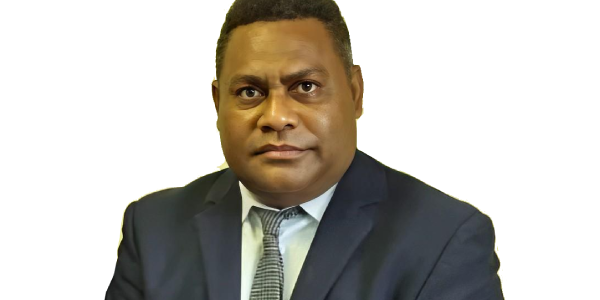THE Bina Harbor Tuna Processing Project in West Kwaio, Malaita Province, is free of land disputes, according to the Minister of National Planning and Development Coordination, Rexon Ramofafia.
Minister Ramofafia made this announcement while opening a one-day Solomon Islands Government (SIG)/Donor roundtable in Honiara on Wednesday 9 October.
The event gathered officials from the Ministry of Fisheries and Marine Resources (MFMR) and representatives from Australia, Japan, New Zealand and the United States.
However, other notable countries like China— the major funder of the National Stadium for the 2023 Pacific Games— India, the United Arab Emirates (UAE), and Indonesia were not part of the discussions.
Minister Ramofafia acknowledged the historical concerns of development partners regarding land tenure issues, which have long complicated large project developments in the country.
However, he assured attendees that the land tenure is no longer an obstacle for the Bina Harbor Project.
“Land arrangements in Solomon Islands are complex because the indigenous people own the land and it is their fundamental right to benefit from any project in their space,” Minister Ramofafia said.
Minister Ramofafia explained that the MFMR’s community engagement team worked patiently with landowners, ensuring full, informed registration of the land required for the development. Progress is also being made on securing access to the harbor and water sources.
Alongside land mobilisation, MFMR has been engaged in technical work to identify the essential requirements needed to attract private sector investment in the proposed tuna processing plant at Bina Harbor.
The International Finance Corporation (IFC) has played a crucial role in supporting the Ministry’s engagement with reputable private sector partners.
“With assistance from the IFC and New Zealand, MFMR has also determined the necessary infrastructure and utilities for establishing a functional tuna port to serve the processing plant, while also considering future expansions,” he added.
Minister Ramofafia also stressed the urgency of securing financial support to move the $202 million project forward.
He encouraged development partners to commit their engagement, stressing that the investment must not be delayed.
The government, he said, is actively seeking ways to reduce the overall investment required to realize the Bina Harbor Project.
This includes exploring the possibility of packaging various infrastructure elements—such as the port, water supply, wastewater management, and power supply—for consideration by individual development partners.
“As part of cost-reduction efforts, the Government plans to request that the Solomon Islands Ports Authority (SIPA) conduct a costing study of the proposed port configuration. Given SIPA’s experience in port development, it could help optimize construction costs and might even take on asset ownership of the port facility,” Minister Ramofafia said.
He concluded by inviting development partners and stakeholders to specify their contributions toward turning the Bina Harbor Tuna Processing Plant into reality.
By EDDIE OSIFELO
Solomon Star, Honiara









